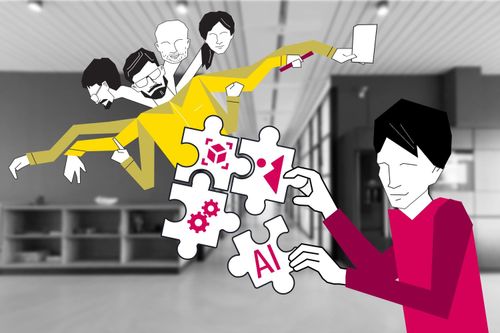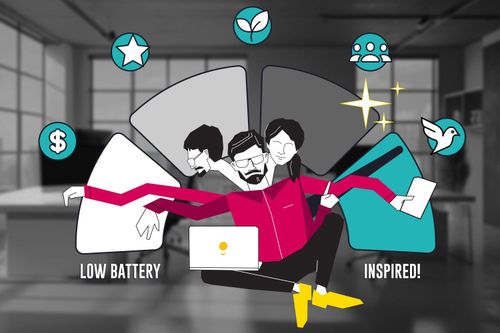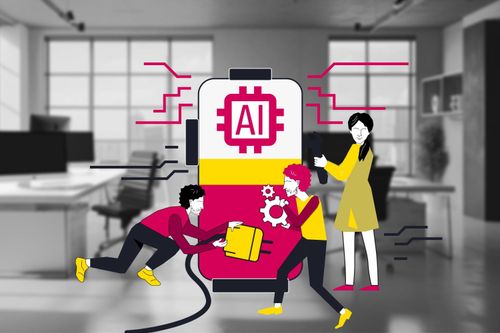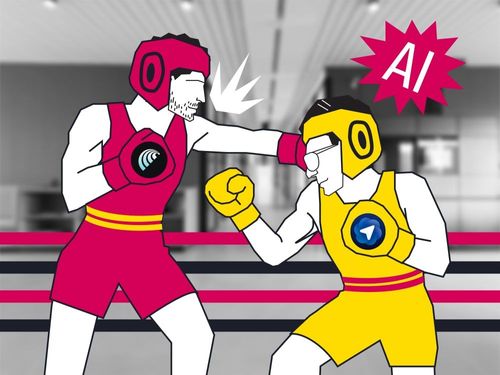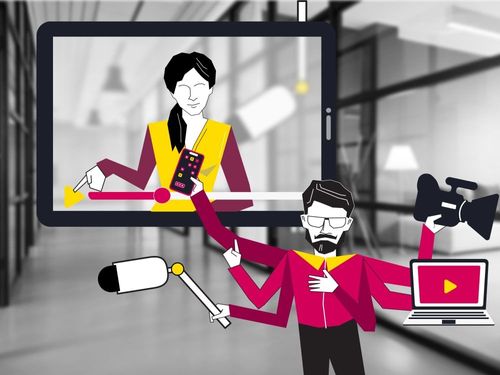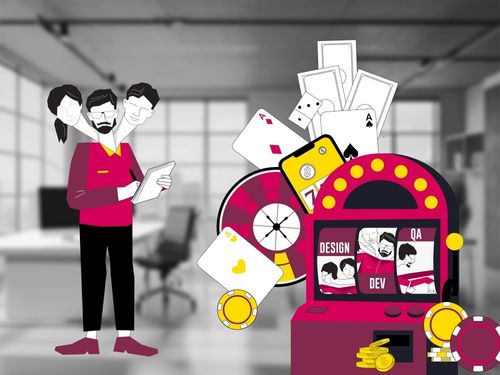
Being a top-notch developer isn't just about coding anymore. In this AI era, it's about being adaptable and having a wide set of skills.
We’ve run 25 interviews with Smartexe clients to put together the following list of specializations. But one specialization isn’t enough. I highly recommend at least 5 specializations for a software engineer to get ahead.
1. Become Programing Multilingual
Being able to code in different languages is super handy. And guess what? AI can help you switch between them, suggest improvements, and even fix bugs. It's like having a coding buddy who's always got your back.
We recommend you be proficient in at least 2 major languages and master the transition between them and 2 more additional languages. The more the merrier!
It's all about understanding the grammar and vocabulary of different coding languages so you can use AI to switch between them easily.
2. Master the Clouds
The future is all about the cloud, and knowing your way around it is crucial. Pick at least one major cloud platform to master (AWS, Google Cloud, or Azure).
Understand how to set things up there (implementing data pipelines, deploying cloud-based applications, optimizing cost and performance, etc.) and pass a certification.
Note, if you will use AI algorithms you can optimize cloud infrastructure and reduce costs by automating many routine tasks.
3. Rock at Testing
Testing your code can be a chore, but AI can make it a whole lot easier. AI tools can help automate testing, prioritize what needs checking, and even predict where bugs might pop up. AI is about making testing smarter, not harder.
Try to master at least 3 types of testing with the help of AI:
Unit Testing: AI can predict the most critical paths in your code for testing based on historical data, making sure you're covering the parts that matter most.
Integration Testing: AI tools can automatically generate test cases for new features by analyzing how they interact with existing components, saving you a ton of time.
System Testing: AI tools can help simulate real-world user behaviors based on patterns learned from user data. This means you can conduct comprehensive system testing that's rooted in how your software is actually used.
4. Plan Software Development
Software Architects define the processes and the technologies dev teams should use. People looking to specialize in this field need to master 3 essential skills:
Design Pattern Identification: AI can analyze vast amounts of data from past projects to suggest architectural patterns and design decisions that have been successful in similar contexts. This can help architects choose the most effective patterns and avoid common pitfalls.
Predictive Analysis for Scalability: AI can analyze application usage patterns and predict future growth, helping architects design systems that can scale smoothly over time. This predictive capability ensures that systems are both efficient and cost-effective, avoiding over-provisioning of resources while still meeting demand.
Optimizing Performance: Through machine learning, AI can predict how different architectural choices might impact the performance of a system under various conditions. It can simulate and analyze the outcomes of different architectures, helping to optimize for speed, resource usage, and scalability before the system is built.
5. Create Continuity
Whether it’s DevOps, Cloud, or QA, Continuous Integration and Continuous Delivery (CI/CD) have become more and more important in the last few years.
CI is important in teams because it quickens the feedback process, and organizations make revenue on features they deploy without waiting for manual code checks. Continuous Delivery (CD) involves automating the process of application release after the codebase has passed the CI stage.
In the CI/CD pipeline, different tools have distinct functions that can be customized to match the needs of your project. Here are some tools that our developers suggest you know: Jenkins, Litmuschaos, Tekton. These CI/CD skills help you to be on the same page with DevOps and streamline the development process.
Also, note that AI can help you in managing branches and offering recommendations on merging.
6. Expert in IDEs or Text-editors
When it comes to selecting the best development environment there is no one correct solution. It is better to try a few than choose the best IDE and text editor according to project requirements and your programming language.
For ex. for JavaScript, Ruby, PHP, .NET, and C/C++ you can use Visual Studio Code, JetBrains. You should be an expert in at least 1 IDE and 1 text editor, so if you need to use the other you will easily figure it out in a couple of days.
AI-powered plugins and assistants make your learning and work more intuitive, efficient, and responsive. Here are some examples of where AI is making a significant impact:
Visual Studio Code with GitHub Copilot: It’s like having a co-developer who’s available 24/7.
JetBrains IntelliJ IDEA: With plugins like Codota or Tabnine, IntelliJ offers code completions based on patterns learned from millions of programs.
Sublime Text: While primarily a text editor, Sublime Text can be supercharged with AI plugins to provide intelligent code completions.
Atom with Kite: Kite integrates with Atom to provide AI-powered code completions, documentation, and even code snippets based on your context.
Database Guru
Knowing your way around databases is a very valuable skill. To become a database expert you should have at least 1 SQL and 1 NoSQL proficiency in your CV.
Our experts recommend the combination of MySQL and Mongot.
AI makes mastering this specialization easy, as it allows to automate routine tasks, such as data modeling, schema design, and performance optimization.
8. Version Master
If you want to master Version/Source Control, Git is your guardian angel. Learn how to navigate yourself in GitHub or GitLab to get this specialization. Both platforms have their strengths, and the best choice often comes down to your specific needs and preferences.
GitHub shines for open-source projects and community engagement. Its Copilot suggests whole lines of code or entire functions as you type, based on the context of the code you're working on. It's powered by OpenAI's Codex and can significantly speed up coding tasks, help learn new programming languages and frameworks, and even improve code quality by suggesting best practices.
GitLab, on the other hand, offers a comprehensive suite of tools for managing the entire software development lifecycle in one place.
9. Wizard of Scripting
Any skilled software developer should master scripting in at least 1 of these 3 languages Bash, Python, or JavaScript. AI can help here in adapting your scripts to changing environments, and even automating decision-making processes.
Also,knowing how to leverage automation frameworks and tools (like Ansible for IT automation, or Selenium for automating web browsers) can significantly enhance your proficiency as a developer.
10. Master Encryption & Cryptography
Security is a big deal. Here are 4 crucial areas you should be well-versed in:
1. Encryption. Learn when to use secret decoder rings (symmetric encryption) versus special lock-and-key pairs (asymmetric encryption). Dive into popular types of encryption like AES for keeping things locked up tight and RSA for when you need to share secret messages safely.
2. Public Key Infrastructure (PKI) and Digital Certificates: Essential for implementing secure communication protocols such as HTTPS, signing code to verify authenticity, and securing email communications. Understanding PKI is crucial for developing and deploying secure applications on the internet.
3. Hashing and Data Integrity: is crucial for securing passwords, verifying data integrity, and implementing blockchain technology. Understanding the nuances of hashing can help you prevent vulnerabilities related to hash collisions and ensure that data hasn’t been tampered with.
4. SSL/TLS - The Internet’s Security Guards:This is fundamental for securing web applications, APIs, and any form of data exchange over the internet. Knowing how to properly implement and configure SSL/TLS is essential for protecting data from eavesdropping and man-in-the-middle attacks.
By mastering 5 of these 11 specializations, you'll be well-equipped to tackle the challenges of modern software development in an AI-driven world.
So, what’s your specialization score?
Next time we’ll cover must-have soft-skills for software engineers. Follow us not to miss it.
Looking to hire developers? How about an organic team with relevant expertese that can start delivering from day one? Give us a ping to see what teams are available today.

